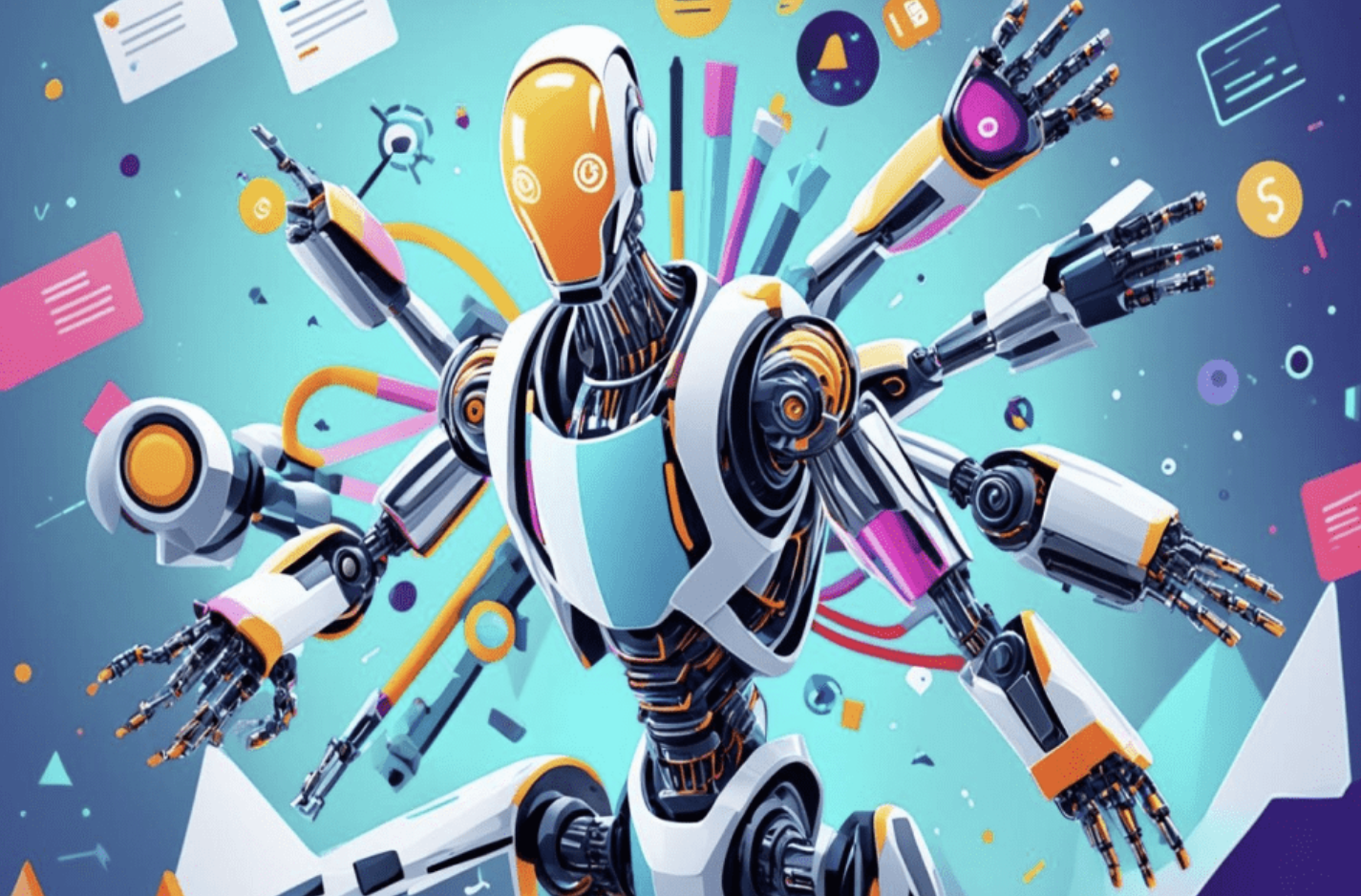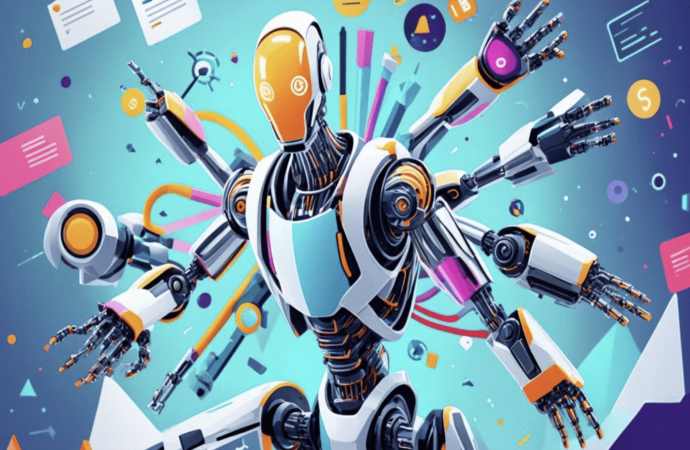Artificial Intelligence (AI) has quickly made its mark in digital marketing, offering both new opportunities and challenges. From speeding up content creation to adapting to constantly evolving Google algorithm updates, AI is changing how website owners compete in search results. It’s no longer just about keyword stuffing—today, successful SEO strategies involve a mix of machine

Artificial Intelligence (AI) has quickly made its mark in digital marketing, offering both new opportunities and challenges. From speeding up content creation to adapting to constantly evolving Google algorithm updates, AI is changing how website owners compete in search results. It’s no longer just about keyword stuffing—today, successful SEO strategies involve a mix of machine learning and human oversight. In this article, we’ll explore how AI-generated content is reshaping the SEO landscape and what it means for anyone aiming to maintain a strong online presence.
The Growing Role of AI in SEO
AI has evolved from a buzzword to a driving force in how we interact with search engines. Tools powered by natural language processing and machine learning help marketers optimize everything from headlines to metadata. The benefits are clear: faster publishing, easier content updates, and the ability to handle larger keyword sets without overwhelming your team.
However, there’s a downside. While AI can help produce content quickly, it sometimes sacrifices the human touch that makes content truly resonate with readers. So, while AI can cover a lot of ground, it’s important to ensure that the content still feels authentic and engaging to your audience.
Why AI Matters for Modern SEO
Speed: AI-generated blog posts are a game-changer for site owners who need to keep up with breaking news or trending topics. With just a few clicks, fresh, relevant content can be ready to go.
Efficiency: These tools can scan vast amounts of data in seconds, providing valuable ideas or outlines that save time during the research phase.
Data Analysis: AI excels at analyzing user intent and keyword patterns, offering insights that might be overlooked by human analysts.
Scalability: Handling large-scale content projects becomes more manageable when AI can take care of initial drafts or keyword mapping.
However, AI-generated content can hurt your rankings if it lacks depth or comes across as repetitive. Google doesn’t ban AI-generated content, but it does emphasize the importance of authenticity, relevance, and authority. If your site churns out shallow or low-quality content, your search rankings might suffer.
Google’s Response to AI Content
Search engines, particularly Google, have been using AI for years to improve their algorithms. Google’s AI analyzes user intent, connects synonyms, and assesses content quality. Recently, with innovations like the Search Generative Experience (SGE), Google has taken its AI capabilities even further.
Improved Context Understanding: Google now goes beyond simple keyword matching. It interprets a page’s context to determine if it genuinely addresses a user’s query.
Authority & Trustworthiness: Websites with recognized expertise and strong user engagement tend to rank higher. If your AI content is generic or feels like filler, it could push you down in the rankings.
Frequent Updates: Google updates its algorithm regularly, and mass-produced or irrelevant content might trigger penalties for AI-generated text.
The key question is, “Does AI content hurt SEO?” The answer depends on whether your content provides value. If your posts answer user questions in a helpful way, you’re likely in the clear. But if your content feels like fluff, Google’s filters will push you lower. As AI-driven SEO becomes more sophisticated, it’s essential to blend AI efficiency with human creativity to stay ahead of the curve.
The Human Advantage
While AI has its strengths, human writers bring qualities that machines can’t match:
Emotional Connection: A skilled writer can weave personal stories and insights that deeply resonate with readers.
Tone Control: Humans can easily adjust tone and language, drawing on cultural references or current events that might trip up an AI.
Contextual Awareness: Real writers understand the context and can tailor content for specific audiences, industries, or demographics.
Where AI Excels
AI shines in areas where consistency and speed are key:
Consistent Format: AI is great for tasks like generating product descriptions or maintaining consistent structures.
Quick Turnaround: AI can create content outlines, introductions, or basic drafts in minutes, making it perfect for tight deadlines.
Data-Driven Insights: AI excels at picking up on subtle search trends and user queries, providing insights more quickly than an individual could.
Choosing the Right AI Writing Tools for SEO
If you’re considering using AI-powered content tools, here are a few things to keep in mind before diving in:
Natural Language Quality: Not all AI tools are created equal. Some can produce awkward phrasing or repetitive sentences that may put off readers.
Topic Relevance: Make sure the tool can handle specialized topics and go beyond surface-level information.
Customization Options: The best AI tools allow you to set parameters for tone, style, and formatting, helping to maintain your brand’s voice.
Integration: Look for tools that integrate with platforms like WordPress or Google Docs to streamline your workflow.
Pricing & Support: Some tools come with high subscription fees, so make sure you’re getting full value. Additionally, responsive customer support can save you time if you run into any issues.
Skipping these considerations can lead to frustration and wasted time—especially if your content ends up falling flat.
The Ethics of AI-Generated Content
The rise of AI content raises several ethical concerns. While some view it as a time-saving tool that frees up human writers for more strategic tasks, others worry about job displacement and the potential spread of misinformation.
Plagiarism Risks: Since AI learns from vast datasets, it may inadvertently produce content that’s too similar to existing sources. Running plagiarism checks is essential.
Misinformation: If an AI is trained on outdated or biased data, it could generate flawed content. Always review and fact-check before publishing.
Job Security for Writers: Over-reliance on AI could limit opportunities for human writers. However, many businesses still employ human editors to refine AI-generated drafts, ensuring accuracy and quality.
AI Content and Google Algorithm Updates
Google’s algorithms are constantly evolving. With each update, how content is ranked and displayed changes, and AI-generated content can rank well if it meets user intent. However, there’s no guarantee that AI content will always pass Google’s filters. Over-relying on AI might make your site more vulnerable to penalties in future algorithm changes.
Staying Ahead of the Changes
Track Ranking Fluctuations: After each Google update, monitor your rankings closely. If you see sudden drops, your AI content may not be meeting Google’s new standards.
Optimize Content Regularly: Even AI-generated text needs updating. Fresh data, improved readability, or updated statistics can help keep your content relevant.
Focus on User Queries: Google is better at interpreting user intent than ever before, so make sure your content genuinely answers questions and provides value.
Combine AI with Human Editing: A skilled editor can catch awkward phrasing, improve readability, and ensure factual accuracy.
Whether AI or human-written content is better depends on how well they work together. AI can handle the grunt work, while human writers add nuance and creativity.
The Future of AI and SEO
AI’s role in digital marketing is only going to grow. With language models improving, we’re likely to see more personalized content tailored to individual readers, increasing engagement—but also raising concerns about authenticity and privacy.
At the same time, search engines will keep refining their algorithms to better detect and evaluate AI-generated content. SEO professionals will need to stay on top of these changes, focusing not just on creating more content but on creating high-quality, authoritative content—whether it starts with an AI draft or a human writer’s outline.
Adapting to the Future
AI-generated content has revolutionized SEO, making it easier to produce large volumes of articles quickly. But it also brings new challenges related to quality, authenticity, and search engine compliance. While Google doesn’t dismiss AI content, it does expect meaningful, engaging material that satisfies user intent.
To stay ahead, it’s best to combine AI’s efficiency with human creativity. By doing so, you’ll likely maintain your search ranking and even outperform competitors who rely too heavily on one side of the equation. AI can be a powerful tool, but it’s up to you to shape it into something valuable for both readers and search engines.

















Leave a Comment
Your email address will not be published. Required fields are marked with *